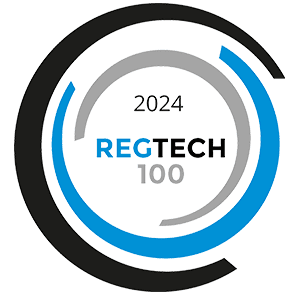The financial services industry is one of the most regulated in the U.S., and all indications show that regulatory oversight will continue to increase. Although most states have yet to roll out a great deal of new legislation this year, federal regulators have been issuing and proposing new rules rapidly, which adds to the burden of already overtaxed compliance professionals.
Recent Additions to the Compliance Roadmap
At the federal level, some of the new regulations we’ve seen include:
Securities and Exchange Commission
During the past couple of years, the SEC has rolled out broad sweeping regulations, including:
Regulation Best Interest
Regulation Best Interest (B.I.) was implemented by the SEC in 2019. This rule requires brokers and financial advisors to act in their client’s best interests and avoid conflicts of interest. Regulation B.I. requires that investment professionals consider each investment in light of their client’s preferences (risk appetite, financial situation, etc.).
Modernized Advertising Rule
The Modernized Advertising rule potentially provides additional freedom to investment professionals as they promote their products and services. However, it also means extra time and energy spent assessing rules, developing and reviewing new advertising strategies, and ensuring compliance as new content is created and distributed. The rule complexifies the already hectic work of compliance professionals as they assess additional methods of communication, including testimonials, social media/digital communication, and more.
The SEC has also proposed a laundry list of new legislation/amendments, including Cybersecurity Risk Management for Investment Advisers, Registered Investment Companies, and Business Development Companies, Regulation S-P: Privacy of Consumer Financial Information and Safeguarding Customer, Safeguarding Advisory Client Assets, Regulation Best Execution, and more.
Department of Labor
The Department of Labor recently released a rule that affects investment professionals by requiring a specific standard of care in managing workers and their investment or retirement assets.
PTE 2020-02
This rule, better known as “Improving Investment Advice for Workers & Retirees,” was designed to ensure that investment professionals who support retirees and workers are giving them the best advice for their specific needs and financial situation.
The rule is designed to ensure that advisors act with an appropriate level of responsibility and care when managing their clients’ assets rather than recommending options deemed “suitable” (a good fit but not necessarily the best option). The goal of this rule is to avoid conflicts of interest when an advisor might choose to promote an offering that could work for their client, but that also provides the advisor a significant financial incentive to do so.
State-Level Regulations
On the state level, we have seen several states adopt new rules that impact the financial industry, including:
IAR Continuing Education Model Rule
The continuing education model rule provides uniform guidelines for investment advisers, requiring 12 years of continuing education hours to be reported each year. As of May 2023, this rule has been adopted by:
-
- Arkansas
- Colorado
- Kentucky
- Maryland
- Michigan
- Mississippi
- Oklahoma
- Oregon
- South Carolina
- Tennessee
- Vermont
- Washington, D.C.
- Wisconsin
Form CRS
A few states have adopted form CRS, but they are not prevalently required at the state level.
Although new and amended regulation is less prevalent at the state level, it does happen. Advisers do have to pay close attention to the specific rules for their areas, especially if they are registered in multiple jurisdictions, and ensure they remain in compliance (and they can streamline their filings using our Registration Management software).
The sheer and ever-growing volume of regulation makes it increasingly difficult for those in the financial services industry to ensure compliance with the rules and regulations under which they operate. For advisers at either the federal or state level to stay on top of their compliance program, it is important to know where to look to keep up to date with regulations.
For SEC-registered investment advisers, the SEC posts final and proposed rules on their website. Industry-focused groups, such as the NSCP, generally highlight high-level changes that could affect compliance professionals. And our Red Oak team of compliance experts can help as well. Many firms use our compliance consultants as their first line of defense to ensure they’re up-to-date and prepared for the impact of new regulations. Contact us today to discuss how we can support your team.








